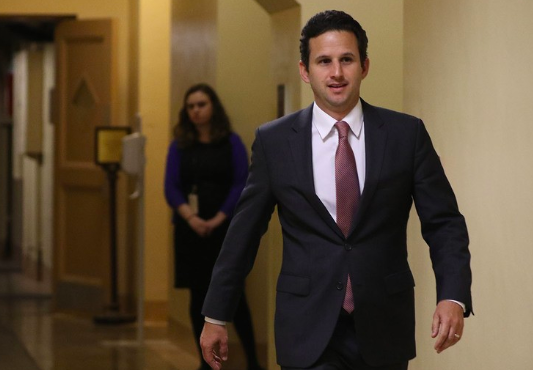
By Senator Brian Schatz
These are challenging, unprecedented times for science. This may not be the first time science has been under attack in the United States – climate denial has been alive and well for some time now – but from a historical perspective, we are in one of the worst moments, if not the worst moment, for science. Particularly government science.
Here is just one example. There are reports the president will create a White House panel to undermine government science on climate, and the person he will choose to lead this panel is the same man who compared climate science to Nazi propaganda.
Let that sink in.
When we can’t rely on our own federal government to protect science and research, we must turn to the people who have stood up to these attacks for decades. They are the scientists, researchers, and students who organized a walkout in 1969 to protest the government’s misuse of science. They are the people who sponsored teach-ins about the threat of nuclear war in 1981. They are the ones who rallied thousands of scientists to defend scientific integrity in government decision-making in 2004. And today, they are the people that continue to stand up for science and the public interest.
I am one of many members of Congress who count on them and appreciate their work. I worked closely with this community on a bill I introduced with Congressman Paul Tonko this week on scientific integrity. The Scientific Integrity Act (S.775) would protect government science from political interference. It would make data and findings off-limits for political appointees and managers, and make sure scientists follow careful processes for review.
This is one of many ways that we can answer the call of our times and stand up for science. As Thomas Jefferson put it, information is the currency of democracy. And government science is some of the most important information we can have in times like these.
Senator Schatz is the Senior Senator from Hawaii and serves as Senate Democrats’ Chief Deputy Whip, a leadership position that gives him a role in shaping policy and communications. This essay is adapted from remarks Senator Schatz delivered on March 14, 2019.
Scientific Integrity Act Summary
The Scientific Integrity Act will help prevent undue influence over federal science by establishing uniform standards at U.S. agencies to adopt or strengthen existing scientific integrity policies. These policies exist to prevent public research and findings from being distorted or shelved for political reasons. More than 20 federal agencies have developed some form of scientific integrity policy to-date but standards remain inconsistent. The Scientific Integrity Act would:
- Formalize and reinforce policies that require federal agencies that conduct or fund scientific research to maintain clear scientific integrity principles;
- Affirm that science dictates policy, and that scientific research should be free from the pressure of politics, ideology, or financial influence; and
- Hold public scientists to high standards and guarantee their rights and protections under the law.
Senator Schatz said upon introducing the bill, “President Trump has built a track record of distorting or suppressing science. In its first two years, the Trump Administration has buried reports on public health risks from perfluoroalkyl substances, falsified scientific claims to justify restrictions on birth control access, prohibited the Centers for Disease Control staff from using the words “evidence-based” and “science-based” in budget documents, and scrapped an EPA-recommended ban on chlorpyrifos, a pesticide proven to impair brain development in young children. Our bill would protect government science from political interference. It would make data and findings off-limits for political appointees and managers, and make sure scientists follow careful processes for review.”

March 16, 2019 » Act on Climate, climate change, climate science, research, science, scientific integrity, Senate, United States
